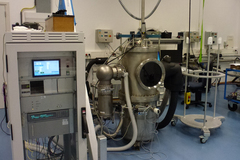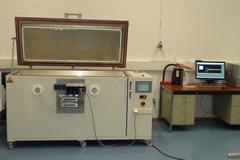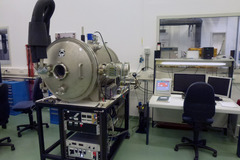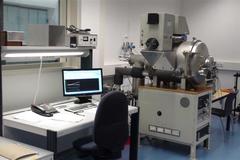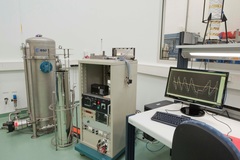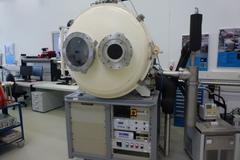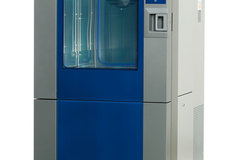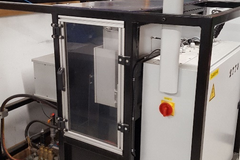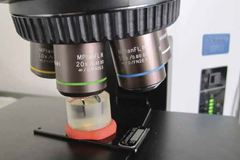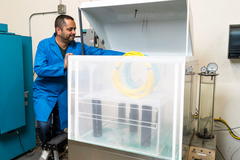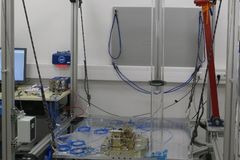For structures that are exposed to high temperature changes, it is essential to know the thermal expansion of the materials used. In this way, measures can be taken to avoid induced stresses. As the coefficient of thermal expansion (CTE) changes with the temperature, we cool the samples in our setups down to -263°C (10K) and heat them up to 200°C.
Round and flat samples of various dimensions as well as structures can be tested by either cooling them directly with liquified nitrogen and helium or by vacuum insolating and radiation cooling the specimens. Capacitive sensors or laser interferometers measure the change in length. By conducting measurements in different dimensions, structures and anisotropic materials can be characterized. The thermal expansion of structural elements like cables, tapes and fabrics can be determined by change of sagging.
Applications:
• coefficient of thermal expansion (CTE)
• wide temperature ranges from -263°C (10K) to 200°C
• multidirectional thermal expansion
Devices under test:
• flat and round material samples
• structures
• anisotropic materials
• CFRP tubes
• cables, tapes and fabrics

